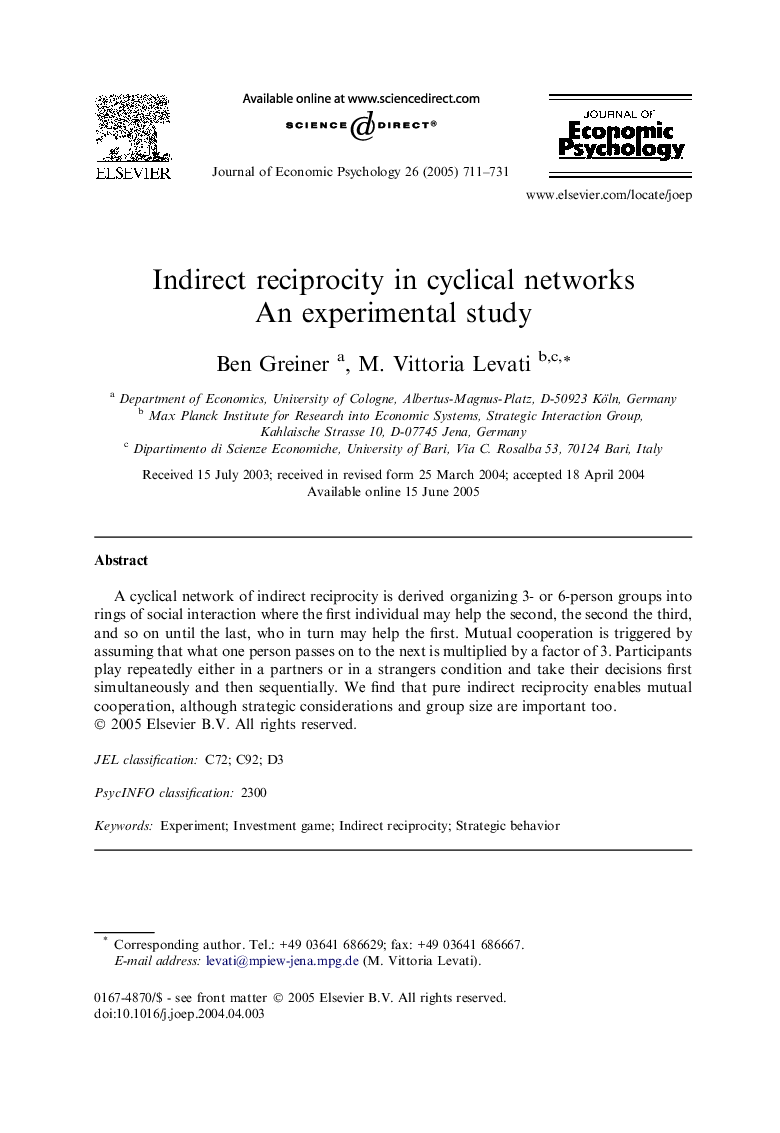| Article ID | Journal | Published Year | Pages | File Type |
|---|---|---|---|---|
| 10438528 | Journal of Economic Psychology | 2005 | 21 Pages |
Abstract
A cyclical network of indirect reciprocity is derived organizing 3- or 6-person groups into rings of social interaction where the first individual may help the second, the second the third, and so on until the last, who in turn may help the first. Mutual cooperation is triggered by assuming that what one person passes on to the next is multiplied by a factor of 3. Participants play repeatedly either in a partners or in a strangers condition and take their decisions first simultaneously and then sequentially. We find that pure indirect reciprocity enables mutual cooperation, although strategic considerations and group size are important too.
Related Topics
Social Sciences and Humanities
Business, Management and Accounting
Marketing
Authors
Ben Greiner, M. Vittoria Levati,
